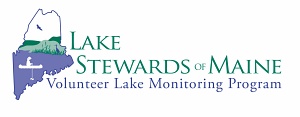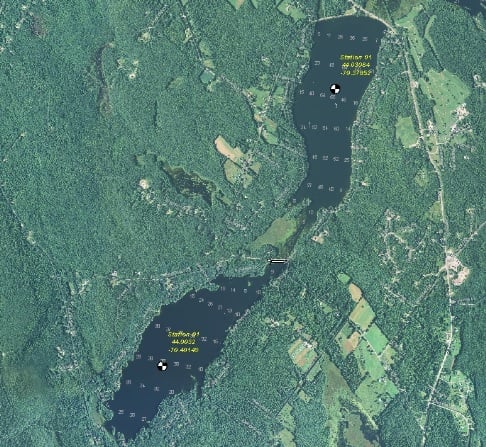The board invited residents and officials from the Maine Department of Inland Fisheries and Wildlife, Range Ponds Association, Lake Stewards of Maine, and the Androscoggin Soil and Water Conservation District to attend.
Board Chairman Stephen Robinson told the crowd in the town’s conference room and over 30 people on a Zoom link that the purpose of the session was was “to reach a common understanding . . . to what is the issue, what is the problem, and what is going to be the approach to try to correct some of these problems.”
Robinson said the board does not have the authority to do a lot of things, except to suggest changes or introduce ordinances that would require town approval. He said the board is in a position to help resolve the issues but cannot be the driving force to incorporate change.
Scott Williams, the retired executive director of Lake Stewards of Maine, said there were two likely causes to the algal bloom based on his understanding. He cited the warmer-than-normal water temperature (mid-80 degrees) and moderate to high concentration levels of phosphorus nutrients. Phosphorus is a component of most fertilizers.
Williams noted that in early to mid-July a significant rainstorm triggered a fair amount of stormwater runoff from the watershed, which likely carried phosphorus into the lakes.
He said the potential “is very real” for the algal bloom to happen again.
Emma Lorusso, project director for the Androscoggin Soil and Water Conservation District, advised that the watershed survey for Middle Range Pond should be updated. The last survey was an estimated 25 years ago.
Lorusso outlined the process of applying for grants to deal with the problem, saying the survey must be done first to get money to remedy the problem.
John Aromando, a Range Ponds Association board member, provided a four-page letter listing 10 areas of concern. The volunteer group monitors the water quality of Lower, Middle and Upper Range ponds and provides education and technical assistance.
The letter, which is also available at the town office, suggested the following:
- Better management of stormwater runoff.
- Restrictions on the use of fertilizers and other materials in the vicinity of the ponds.
- Periodic inspection of septic systems near the ponds.
- Portable toilets at the boat ramp between Upper and Middle Range ponds.
- An ordinance prohibiting boat moorings overnight on the ponds not associated with any lakefront property.
- Enforcement to limit street parking near the boat ramp between Upper and Middle Range ponds.
- Consideration of a limit on boat and motor size on Middle and Upper Range ponds.
- Discussion about control of lake water levels in the three ponds and how that is regulated.
- Consideration of restrictions on the use of fireworks on and around the ponds.
Scott Lindsay, biologist from the Maine Department of Inland Fisheries and Wildlife, spoke about how the town could proceed in expanding parking facilities at the ponds. He said any “carefully planned access way” should take into consideration the “finite use on the lake.”
He noted that enlarging parking facilities could “all of sudden create this attraction for other people who would not otherwise come.”

